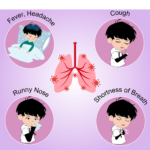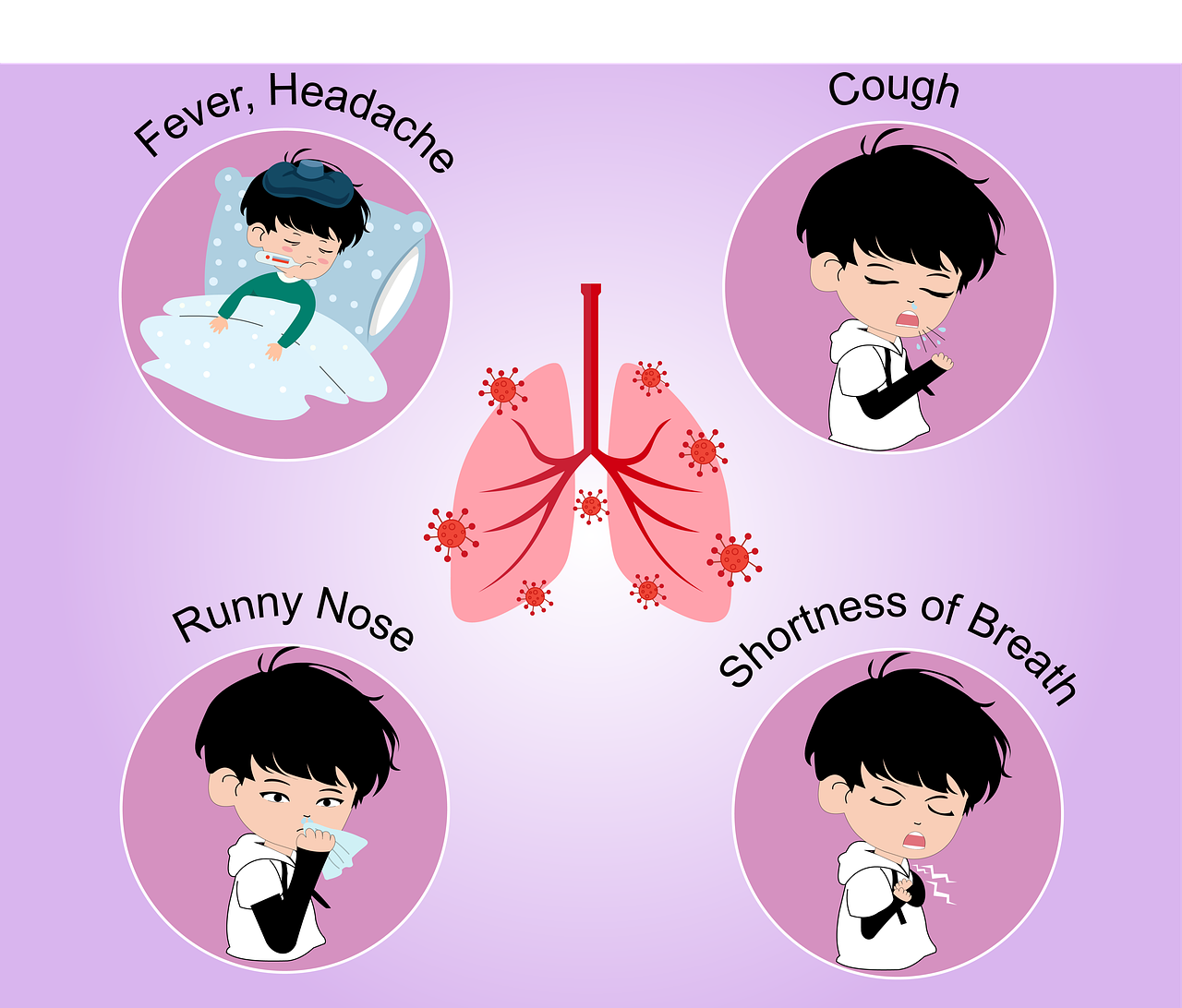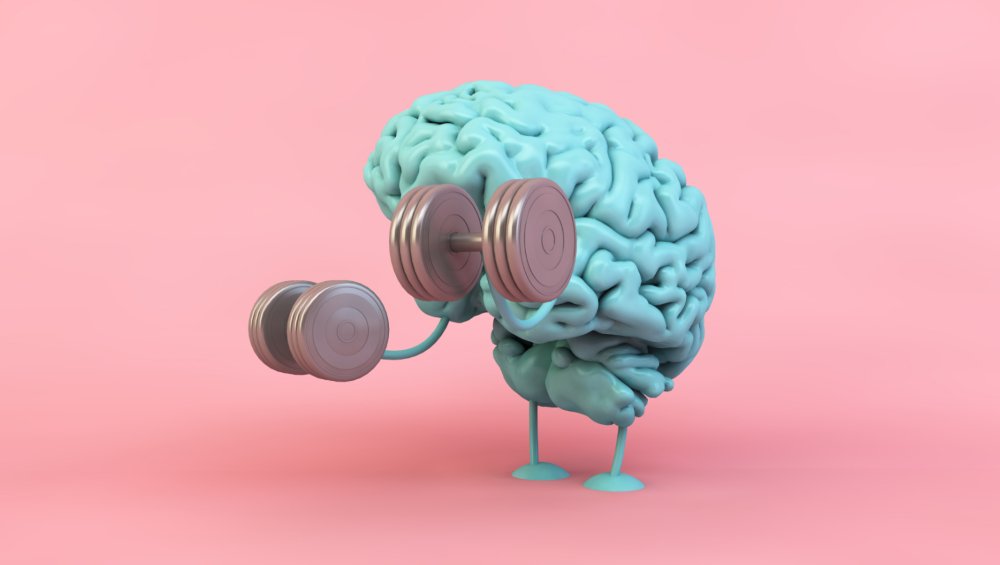Hi there! I hope this message finds you in good of health. For long I have been wanting to write this but my day-to-day schedule has kept me away from it. I’m writing to you today because I’ve been suffering from shortness of breathing for the past few years, and I believe I can give some best practical examples. They’re worse at night and in the winter, and sometimes they’re so bad that it’s difficult to breathe.
I’ve been taking medication as prescribed by my doctor, but it doesn’t always help. I’m starting to think that there may be other factors contributing to my breathing problems, such as our pet dog, the amount of greenery around our house, and the clutter in our rooms.
I’ve also been doing some research on the topic, and I’ve learned that a strong immune system is essential for good overall health. When your immune system is strong, it can help fight off infections and other health problems.
I’m thinking that maybe my breathing problems are related to my weakened immune system. I’m going to start making some changes to my lifestyle to boost my immunity, such as eating a healthy diet, exercising regularly, and getting enough sleep.
Apart from the above factors, there are quite a few other reasons for shortness of breathing and some of the most common reasons include:
Lung diseases: These include asthma, chronic obstructive pulmonary disease (COPD), and pneumonia. These diseases can cause inflammation and narrowing of the airways, making it difficult to breathe.
Heart diseases: Heart diseases, such as heart failure and coronary artery disease, can also cause breathing problems. This is because the heart may not be able to pump enough blood to the lungs, which can lead to shortness of breath.
Infections: Infections of the airways, such as bronchitis and pneumonia, can also cause breathing problems. These infections can cause inflammation and swelling of the airways, making it difficult to breathe.
Allergies: Allergies can also cause breathing problems. This is because allergies can trigger inflammation and narrowing of the airways.
Anaphylaxis: Anaphylaxis is a severe allergic reaction that can cause breathing problems. This is because anaphylaxis can cause swelling of the airways, making it difficult to breathe.
Pulmonary embolism: A pulmonary embolism is a blood clot that blocks an artery in the lung. This can cause sudden shortness of breath and chest pain.
Altitude sickness: Altitude sickness can occur when you go to high altitudes too quickly. This is because the air is thinner at high altitudes, which can make it difficult to breathe.
Obesity: Obesity can put pressure on the lungs and make it difficult to breathe.
Trauma: Trauma to the chest, such as a broken rib, can also cause breathing problems.
If you are experiencing breathing problems, it is important to see a doctor to get a diagnosis and treatment. The treatment for breathing problems will depend on the underlying cause.
Here are some additional things to keep in mind about breathing problems:
- Breathing problems can be mild or severe.
- Breathing problems can be sudden or develop over time.
- Breathing problems can be caused by a single factor or by a combination of factors.
- Breathing problems can affect people of all ages.
These are some reasons of shortness of breathing and here are some of the causes of the diseases I mentioned above:
Asthma: The exact cause of asthma is not known, but it is thought to be a combination of genetic and environmental factors. Some of the environmental factors that can trigger asthma attacks include allergens, such as pollen, dust mites, and pet dander; cold air; and exercise.
Chronic obstructive pulmonary disease (COPD): COPD is caused by a combination of smoking and exposure to secondhand smoke. Other risk factors for COPD include exposure to dust, fumes, and chemicals, and a family history of COPD.
Pneumonia: Pneumonia can be caused by bacteria, viruses, or fungi. The most common cause of pneumonia in children is the respiratory syncytial virus (RSV). The most common cause of pneumonia in adults is the Streptococcus pneumoniae bacteria.
Heart failure: Heart failure can be caused by a variety of factors, including coronary artery disease, high blood pressure, and diabetes. Other risk factors for heart failure include smoking, obesity, and a family history of heart failure.
Coronary artery disease: Coronary artery disease is caused by a buildup of plaque in the arteries that supply blood to the heart. This buildup of plaque can narrow the arteries and make it difficult for blood to flow to the heart.
Bronchitis: Bronchitis can be caused by a virus, bacteria, or irritants, such as smoke or dust. The most common cause of bronchitis is the rhinovirus, which is the same virus that causes the common cold.
Allergies: Allergies are caused by the body’s immune system overreacting to a foreign substance. The foreign substance, called an allergen, can be anything from pollen to dust mites to pet dander.
Anaphylaxis: Anaphylaxis is caused by exposure to an allergen that the person is allergic to. The most common allergens that cause anaphylaxis are food, insect stings, and medications.
Pulmonary embolism: Pulmonary embolisms are most often caused by deep vein thrombosis (DVT), a blood clot that forms in a vein in the leg. Other risk factors for pulmonary embolism include surgery, cancer, and recent childbirth.
Altitude sickness: Altitude sickness is caused by the lack of oxygen at high altitudes. The higher the altitude, the less oxygen there is in the air. People who are more likely to develop altitude sickness include those who are not physically fit, those who are overweight, and those who are taking certain medications.
Obesity: Obesity is caused by a combination of eating too many calories and not exercising enough. Other factors that can contribute to obesity include genetics, certain medications, and medical conditions.
Trauma: Trauma to the chest, such as a broken rib, can damage the lungs or airways. This can lead to breathing problems.
Lung diseases: The following are some of the causes of Lung diseases.
- Smoking: Smoking is the number one cause of lung diseases. The smoke from cigarettes, cigars, and pipes contains harmful chemicals that can damage the lungs.
- Secondhand smoke:Secondhand smoke is also a major cause of lung diseases. It is the smoke that comes from cigarettes, cigars, and pipes that are being smoked by others.
- Air pollution:Air pollution is a mixture of harmful gases and particles in the air. It can come from cars, factories, power plants, and other sources. Air pollution can damage the lungs and increase the risk of lung diseases.
- Occupational exposures:Some occupations expose workers to harmful chemicals or dust that can damage the lungs. These occupations include mining, farming, construction, and manufacturing.
- Inherited conditions:Some lung diseases are caused by inherited conditions. These conditions are passed down from parents to children.
- Viruses:Some viruses, such as the virus that causes pneumonia, can damage the lungs.
- Inflammation:Inflammation can damage the lungs. This can be caused by a variety of factors, including smoking, air pollution, and infection.
- Radiation:Exposure to radiation can damage the lungs. This can happen from exposure to radioactive materials or from radiation therapy for cancer.
Does breathing problem causes due to cold weather or in winters?
Yes, breathing problems can be caused by cold weather or in winters. Here are some of the ways how cold weather can affect breathing:
Dry air: Cold air is dry air. This means that it has less moisture than warm air. Dry air can irritate the airways and make it difficult to breathe.
Cold air can trigger asthma attacks: Cold air can trigger asthma attacks in people with asthma. This is because the cold air can irritate the airways and cause them to narrow.
Infections: Cold weather can increase the risk of respiratory infections, such as bronchitis and pneumonia. These infections can cause inflammation and swelling of the airways, making it difficult to breathe.
Heart problems: Cold weather can worsen heart problems, such as heart failure. This is because the heart has to work harder to pump blood when it is cold.
Allergies: Cold weather can trigger allergies in people with allergies. This is because the cold air can dry out the airways and make them more sensitive to allergens.
It is important to take steps to protect yourself from the cold weather. Here are some tips:
Stay warm: Wear layers of clothing to stay warm. Avoid getting cold.
Humidify the air: If you have a humidifier, use it to add moisture to the air. This can help to prevent the airways from drying out.
Take medications as prescribed: If you take medications for breathing problems, be sure to take them as prescribed, even during cold weather.
Avoid strenuous activity: Avoid strenuous activity in cold weather. This can make breathing problems worse.
See a doctor: If you have breathing problems that are severe or do not improve with home treatment, see a doctor.
Does breathing problem causes due to closed rooms or clutters at home?
Yes, breathing problems can be caused by closed rooms and clutters as well. Here are some of the ways how closed rooms can affect breathing:
Lack of ventilation: Closed rooms can lack ventilation. This means that there is not enough fresh air circulating in the room. This can lead to the buildup of pollutants and allergens in the air, which can irritate the airways and make it difficult to breathe.
Moisture: Closed rooms can also be humid. This can also irritate the airways and make it difficult to breathe.
Dust and mold: Closed rooms can also be dusty and moldy. Dust and mold can trigger allergies and asthma attacks, making it difficult to breathe.
Cigarette smoke: If there is cigarette smoke in a closed room, this can irritate the airways and make it difficult to breathe.
Pet dander: Pet dander can also be a trigger for allergies and asthma attacks, making it difficult to breathe.
It is advised to avoid closed rooms or to make sure that the rooms are well-ventilated. Here are some tips:
Open the windows: If possible, open the windows to let fresh air in.
Use a fan: If you cannot open the windows, use a fan to circulate the air.
Use a dehumidifier: If the room is humid, use a dehumidifier to remove the moisture from the air.
Clean the room regularly: Vacuum the room regularly to remove dust and mold.
Avoid cigarette smoke: If there is cigarette smoke in the room, leave the room.
Avoid pets: If you have pets, keep them out of the room.
If you have severe breathing problems that do not improve with home treatment, see a doctor. They can help you determine the best medication for you and whether your shortness of breath is temporary or permanent. Further, we will also delve in the types of medication available i.e. Allopathic, Ayurvedic or Homeopathic and differentiate how far it best suits to each individual. This is going to take long and hence don’t sign off from the page, you may be missing out some of the most important points you never heard off which can be a turning point in your life for a healthy and stress free living.
And also, we will understand, whether you need to take medication or not depends on the underlying cause of your breathing problems and individual needs. Some breathing problems, such as asthma, may require long-term medication. Other breathing problems, such as a cold, may go away on their own with rest and home treatment. Your doctor will be able to help you decide which medication is right for you. Here we go!
Allopathic medicine, Ayurvedic medicine, and Homeopathic medicine are all different types of medicine that can be used to treat breathing problems. There is no one-size-fits-all answer to which type of medicine is best. The best type of medicine for you will depend on your individual needs and preferences.
Allopathic medicine is the type of medicine that is most commonly used in Western countries. It is based on the scientific understanding of the body and uses medications that have been tested and approved by regulatory agencies.
Ayurvedic medicine is a traditional Indian system of medicine. It is based on the belief that the body is made up of five elements: earth, air, fire, water, and ether. Ayurvedic medicine uses herbs, minerals, and other natural substances to treat a variety of health conditions, including breathing problems.
Homeopathic medicine is a system of medicine that uses very small doses of substances that would normally cause the symptoms of the condition being treated. Homeopathic medicine is based on the belief that “like cures like.”
If you are considering using any type of medicine to treat breathing problems, it is important to talk to your doctor. Your doctor can help you decide which type of medicine is right for you and can monitor your progress as you take the medicine.
Here are some general tips for preventing breathing problems:
Quit smoking: Smoking is the number one cause of lung diseases. If you smoke, quitting is the best thing you can do for your health.
Avoid secondhand smoke: Secondhand smoke is also harmful to your health. If you are around secondhand smoke, try to avoid it as much as possible.
Get regular exercise: Exercise helps to improve your overall health and can help to prevent breathing problems.
Get enough sleep: Sleep is important for your overall health and can help to prevent breathing problems.
Eat a healthy diet: Eating a healthy diet helps to keep your immune system strong, which can help to prevent infections that can cause breathing problems.
Manage stress: Stress can trigger asthma attacks and other breathing problems. Find healthy ways to manage stress, such as exercise, yoga, or meditation.
Here are some good medication recommendations for breathing problems:
Asthma:
Short-acting bronchodilators: These are medications that open up the airways quickly and are used to relieve an asthma attack. Examples include albuterol (ProAir HFA, Ventolin HFA) and levalbuterol (Xopenex HFA).
Long-acting bronchodilators: These are medications that open up the airways for a longer period of time and are used to prevent asthma attacks. Examples include budesonide (Pulmicort Flexhaler) and formoterol (Foradil).
Inhaled corticosteroids: These medications reduce inflammation in the airways and are used to prevent asthma attacks. Examples include budesonide (Pulmicort Flexhaler) and fluticasone (Flovent HFA).
Chronic obstructive pulmonary disease (COPD):
Long-acting bronchodilators: These medications open up the airways for a longer period of time and are used to relieve symptoms of COPD. Examples include tiotropium (Spiriva) and glycopyrronium (Trelegy Ellipta).
Inhaled corticosteroids: These medications reduce inflammation in the airways and are used to prevent symptoms of COPD. Examples include budesonide (Pulmicort Flexhaler) and fluticasone (Flovent HFA).
Pneumonia:
Antibiotics: These medications are used to treat the infection that is causing the pneumonia. Examples include amoxicillin (Amoxil) and azithromycin (Zithromax).
Heart failure:
Beta-blockers: These medications slow down the heart rate and make it easier for the heart to pump blood. Examples include metoprolol (Lopressor) and carvedilol (Coreg).
Diuretics: These medications help to remove excess fluid from the body. Examples include furosemide (Lasix) and bumetanide (Bumex).
Bronchitis:
Antibiotics: These medications are only used to treat bronchitis if it is caused by a bacterial infection. Examples include amoxicillin (Amoxil) and azithromycin (Zithromax).
Over-the-counter cough suppressants: These medications can help to relieve a cough. Examples include dextromethorphan (Robitussin DM) and guaifenesin (Robitussin).
Allergies:
Antihistamines: These medications block the effects of histamine, a substance that causes allergic reactions. Examples include loratadine (Claritin) and cetirizine (Zyrtec).
Decongestants: These medications help to relieve a runny nose and stuffy nose. Examples include pseudoephedrine (Sudafed) and phenylephrine (Sudafed PE).
Anaphylaxis:
Epinephrine: This is a medication that is used to treat anaphylaxis. It is available as an injection or an auto-injector.
It is important to note that these are just a few examples of medications that can be used for breathing problems. The best medication for you will depend on the underlying cause of your breathing problems and your individual needs. Your doctor can help you decide which medication is right for you.
These medications are available throughout India. However, the availability of specific medications may vary depending on the location and the pharmacy. It is always best to check with your doctor or pharmacist to see if the medication you need is available in India.
Here are some resources that you can use to find out more about the availability of medications in India:
The Indian Pharmacopoeia: This is the official book of standards for medicines in India. It lists all of the medications that are approved for use in India and is available in Amazon.
The Central Drugs Standard Control Organization (CDSCO): This is the government agency that is responsible for regulating the quality of medicines in India. You can contact the CDSCO to inquire about the availability of specific medications or click the link to get through.
Here are some online stores where you can get the medications at a discounted price.
Netmeds: Netmeds is an online pharmacy that offers a wide variety of medicines, including prescription and over-the-counter medications. Netmeds also offers a variety of discounts and offers, making it a great place to find value for money medicines.
1mg: 1mg is another online pharmacy that offers a wide variety of medicines, similar to Netmeds. 1mg also offers a variety of discounts and offers.
Medlife: Medlife is an online pharmacy that offers a wide variety of medicines, including prescription and over-the-counter medications. Medlife also offers a variety of discounts and offers, including free shipping on orders over a certain amount.
PharmEasy: PharmEasy is an online pharmacy that offers a wide variety of medicines, similar to Netmeds, 1mg, and Medlife. PharmEasy also offers a variety of discounts and offers, including free shipping on orders over a certain amount.
Wellness Forever: Wellness Forever is an online pharmacy that offers a wide variety of health and wellness products, including vitamins, minerals, and supplements. Wellness Forever also offers a variety of discounts and offers.
When choosing an online pharmacy, it is important to compare prices and read reviews to find the best deal. You should also make sure that the pharmacy is reliable and has a good return policy.
Conclusion and Advisory Note:
Breathing problems can be caused by a variety of factors, including allergies, asthma, lung infections, and heart disease. If you are experiencing breathing problems, it is important to see a doctor to get a diagnosis and treatment.
In addition to medical treatment, there are some lifestyle changes that you can make to help improve your breathing. These include quitting smoking, exercising regularly, and eating a healthy diet.
It is also advisable to do a full body check-up once you are 40 plus. This will help to identify any underlying health conditions that may be causing your breathing problems.
As you get older, your body will not have the same amount of energy as it used to have. It is important to listen to your body and avoid activities that are too strenuous.
You should also avoid certain foods that can trigger shortness of breath. These foods include dairy products, caffeine, and alcohol.
Finally, it is important to have a strict diet plan. Eating a healthy diet will help to keep your lungs healthy and improve your breathing.










